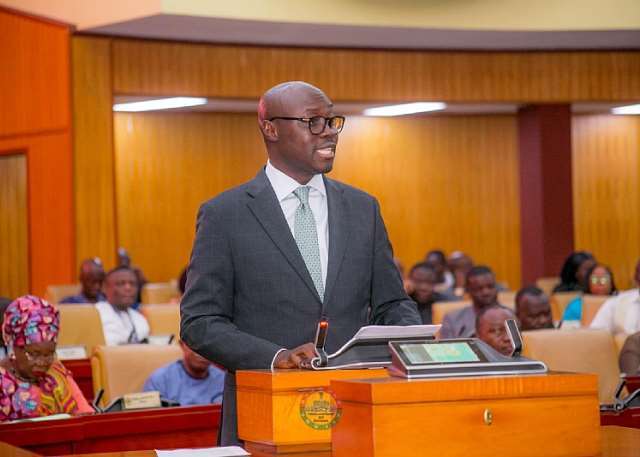Parliament will take centre stage today as Finance Minister Dr. Cassiel Ato Forson delivers the highly anticipated 2025 Mid-Year Budget Review — a critical fiscal address that could set the tone for the second half of President John Dramani Mahama’s first full year back in office.
With Ghana’s macroeconomic indicators showing strong signs of recovery, the biggest question on the minds of analysts, businesses, and international observers is whether the government will maintain its current fiscal trajectory or seek parliamentary approval for supplementary spending in response to emerging pressures.
The review comes on the back of a sharp decline in inflation, which fell from 23.5 percent in January to 13.7 percent by the end of June — a level not seen in over three years. Analysts are now confident that Ghana may achieve single-digit inflation by year-end, surpassing the government’s initial target of 11.9 percent.
The cedi, once a source of anxiety for businesses and consumers alike, has staged an impressive rally. From trading at GH¢15 to the dollar on the interbank market at the start of the year, the local currency is now hovering around GH¢10.45 — a 42.6 percent appreciation that is beginning to ease import costs and reduce pricing volatility in retail markets.
Manufacturers, meanwhile, continue to monitor currency performance under a 60-day stability pact with business associations, hoping the trend holds.
On the fiscal front, the removal of the controversial betting tax has been largely welcomed by the public. However, the recent introduction of a GH¢1 fuel levy has triggered backlash, and many are eager to see whether Dr. Forson will announce a clear exit plan or timeline for its repeal.
Economic growth is also outperforming expectations. Government initially projected GDP growth at 4.4 percent for 2025, but the Ghana Statistical Service has reported a 5.3 percent expansion in the first quarter alone — a development that could prompt a revision of the full-year forecast.
Equally significant is the surge in Ghana’s gross international reserves, which now stand at US$11.1 billion — enough to cover 4.8 months of imports, far above the initial three-month benchmark. The boost is attributed to strong foreign inflows from gold, cocoa exports, remittances, and renewed investor confidence.
As public optimism grows, economists are urging the government to maintain fiscal discipline. With critical infrastructure projects on the horizon, stakeholders warn that any deviation from the current path could undo hard-won gains.
Today’s address will therefore be more than a budget review — it will be a test of credibility, vision, and the government’s commitment to economic stability. As Dr. Ato Forson mounts the podium, stakeholders across finance, industry, civil society, and diplomatic circles will be listening for one thing: whether Ghana will hold the line on fiscal consolidation or shift course in the face of political and developmental pressures.


